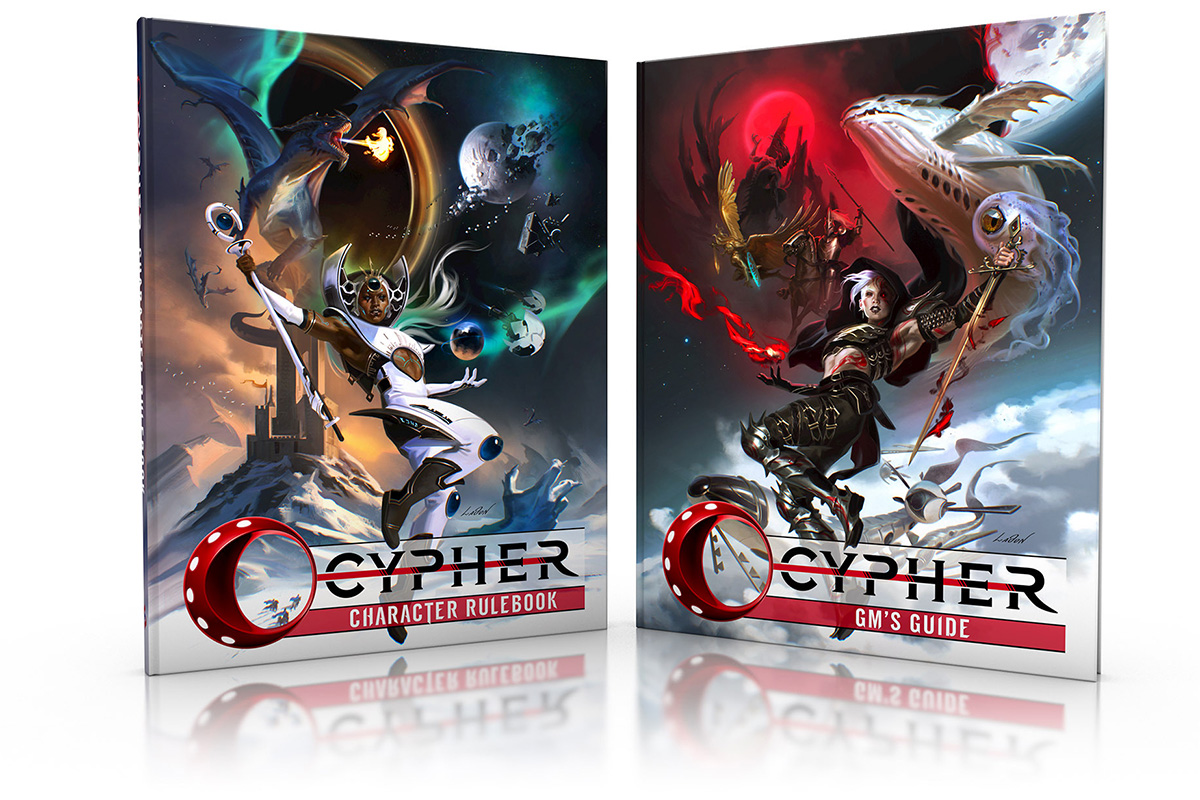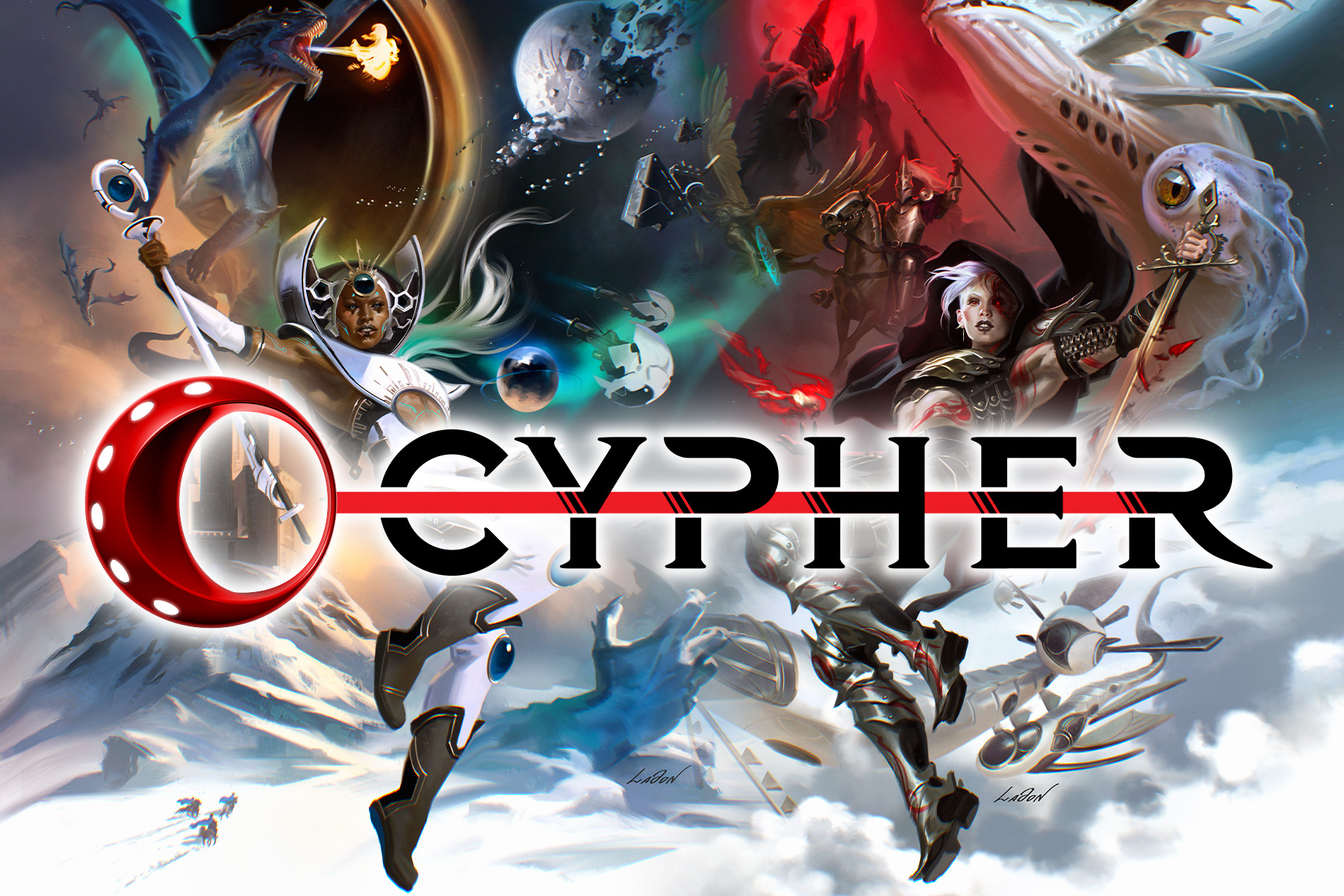The one time I slipped out of Cypher System was because I lost faith in the difficulty system. When a difficulty rating means nothing, you need to take a step back. Cypher is a system where you can quickly slap down a fast number, goblin, difficulty 2, go! The pit trap, uh, difficulty 2! The next door is locked, difficulty 2!
You can see yourself start to question things after a while. What am I doing? Am I just rolling the dice against numbers? This is what I call "losing focus" in the system, and it puts you in a spot where you start to crave games with more depth. But the depth in other systems is often an illusion.
What is armor class or challenge rating in D&D? A d20 target number. This is the same level of "depth" as D&D, and it is an illusion. Cypher is the same exact level of depth, and the dicing is the same.
In GURPS, your chance of success is rolling a number or less on 3d6, such as 14 or less, and this is often modified by difficulty, like a +4 being hard. What is this in Cypher? We start with the difficulty, and ease the roll by your skill level. Cypher is the same exact level of depth, but the dicing is different.
Yes, you feel like you are getting more depth, but as any statistics professor would tell you, all you are doing is taking a different path to get to the same probability result. If your success chance was 40% in any game, you would get there via many paths, and always end up at 40%. How you rate difficulty, roll low or roll high, 2d6, 3d6, d20, 1d100, and difficulty and modifiers all get you to the same place.
At a point, the game you play does not matter at all. This is the beauty of the Cypher System; it goes all the way back to the core mechanic of difficulty versus factors that ease or hinder the roll. We are back to base statistics, on the metal. We build out from there. Our character matters. Our ability score pools matter as a resource to spend. Our edge and effort matter. Our health matters. The rest we have left matters. Our gear and skills matter.
And it all starts with difficulty.
In Cypher, to make those difficulty numbers mean something, change up the consequences of failure!
When edging along a mountain cliff, you may set a difficulty of 2 to maintain balance and move forward, but failure means a thousand-foot fall and certain death. I would allow a player intrusion to save yourself, but consequences are consequences. Best to reduce that to zero and not even roll, spend some effort, rely on your skills, and use assets.
I play solo, so I need to challenge myself to give meaning to the hardships I put my characters through.
Also, when you feel yourself slipping into the "grey zone" where "nothing means anything," toss a GM intrusion at your character, accept it, and make them lose a key piece of equipment, weapon, or armor. Put a consequence on yourself for slipping into the pit of meaninglessness and not feeling anything.
I like to call this "slapping myself" when I play solo. If I fall into a place where I'm not caring, I need to take a hit for that and make my character's life worse.
But, also, if you find yourself creating a sequence of meaningless, grinding the cog forward, ratcheting a series of rolls forward to the end, what are you doing? That isn't playing! That isn't a story! It is like going through the AD&D adventure The Tomb of Horrors, and you are rolling for every trap, every secret door, and every strange fresco and mosaic on the wall. Sure, you are neutralizing the threats as you go, but after the twentieth trap, your eyes glaze over, and you are telling yourself, "Was this an adventure written for D&D?" After a while, you are asking yourself, "Is there anything else to do in here?"
And after my fourth session of going in there, all your trap-finding and secret-door location skills are maxed out and easing everything by two levels. Some D&D adventures make terrible Cypher adventures, and not everything converts so well, since those adventures were never written with a narrative focus. Or even simple things like "the doors slam shut behind you!" or "a ticking clock before something terrible happens!"

There are plenty of tools these days to make an adventure like this much better. Ticking clocks, countdown timers, countdown dice pools, delayed secret effects, affecting perception, paranoia, body horror, strange happenings, losing items that you swore you had, using a horror mechanic, effect on random card draws, misleads, corrupting magic, uncertain magic, whispers, sanity, and so many other tools are at our disposal these days. We also have a whole genre book on horror, featuring Stay Alive, which is full of tools to make adventures like this better, beyond the fear of instant and random death.
I can see how my first attempt to play through Tomb of Horrors would be with Cypher System. Oh, this room, a deadly trap, that is a difficulty of 6. Please roll. Okay, this party member is dead. Let's go to the next room with the difficulty 7 trap and roll again. Hey, two dead, be happy the next room is a 5.
Either I don't care, the adventure is a poor choice, or a lot more work needs to be put into this to make it meaningful in a narrative-based game. You need to be able to read what is on the walls, the books on the shelves, and piece together clues that will give you an edge deeper in the dungeon. Part of the fun here is unlocking the mysteries, one by one, being smart, getting a deeper understanding, and finding the next clue.
The story of the demi-lich at the end should be woven through this story, and understanding the dungeon should be woven into every room, with one more thing to learn, which will help you avoid certain death later. We should know this demi-lich by the end, and we should be horrified at what he is and the story of his madness and downfall. And there should be one clue in there, if we are smart enough to put it all together, which should tell us his weakness.
Make me care. Grab my interest. Let me find secrets. Raise the tension. Give me a reason to cheer or cry. Tell a story.
That is what each die roll should do.


















.jpg)














